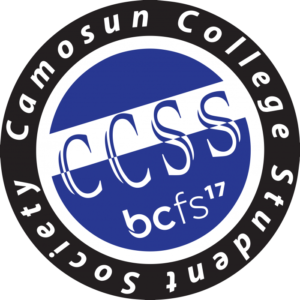The Camosun College Student Society (CCSS) held its spring student elections from Monday, April 8 to Wednesday, April 10. An increased voter turnout landed a total of 1,136 student voters in the elections, which were held online. 674 voted on day one, 120 on day two, and 342 on day three.
Because of a mistake where a platform statement was not included on the online election ballot, a re-election was held from Tuesday, April 16 to Thursday, April 18 for the position of Lansdowne executive; 642 students voted in this re-election. Emily Lam was voted in as the Lansdowne executive.
Electees include Prince Solanki as external executive and Talwinder Singh as finance executive; Rose Patterson was voted in as Indigenous director and Polly (Phuong) Tran as international director; John Sultan Hagos and Angela Chou are Interurban directors, and Sean Leyland is Interurban executive. Terence Baluyut was elected as pride director, and Talhia Grace Plourde as wellness & access director. Leia Grace Elaine Unarce is sustainability director, and Olivia Bult is women’s director.
CCSS executive director Michel Turcotte says that the high voter turnout isn’t the election’s only success—the increase in candidates, and multiple contested positions, is evidence of greater student interest in Camosun issues.
“It was quite an exercise in democracy and student interest,” he says. “So the CCSS is pleased with that result because not having your members interested in running for office is never a good thing… It was the most contested election we’ve had in quite a few years and that really shows maybe an increasing level of democracy, or at least some re-emerging student interest in these sorts of positions and student issues and advocacy and all the other things that go with that.”
Turcotte believes the newly elected board offers a diverse representation of the student body and he looks forward to hearing a range of opinions and ideas from the new board. In past elections, some positions were left unfilled, leaving the responsibilities to other members of the board. With all positions filled this year, he says the variety of contributing voices implies a step in the right direction.
“It’ll be nice to learn to have board meetings where everybody is represented because we have a board structure that’s designed to give representation to various groups or areas within the college community,” he says. “And it’s nice to be able to actually hear those voices.”
The CCSS—which is responsible for services such as the UPass, health and dental plans, food bank, and Walk Safer—is financially supported by students. Turcotte says voting in the CCSS election is a way students are able to participate in selection of these initiatives and the people who enact them.
“CCSS feels that elections are important because this is how students choose the representatives that run the organization that they are all members of and fund,” he says. “So it is much in the same way that a municipal, federal, or provincial election [is] important.”
Turcotte anticipates that the CCSS will continue to support its initiatives and events, including its successful Holi, Diwali, and sustainability-based celebrations. With upcoming goals in mind, he hopes to focus on advocacy going into the future.
“I think that we have the ability to have a bit more of an advocacy focus to add to some of the events and wellness initiatives that we have been working on in the last couple years,” says Turcotte. “So it might be that as one of the areas the CCSS could put a little more effort in.”
Although a portion of candidates were unsuccessfully elected, Turcotte wishes to acknowledge each participant and hopes students remain as an active part of the Camosun College community. He says that the student society best functions with variety, valuing all participants.
“Democracy requires people to run for positions, and even if you don’t succeed, you are making a difference,” he says. “I hope that the candidates who were not successful this time will continue to stay engaged with what’s going on at CCSS and Camosun generally, and we’d really like to thank them for putting their names forward.”

